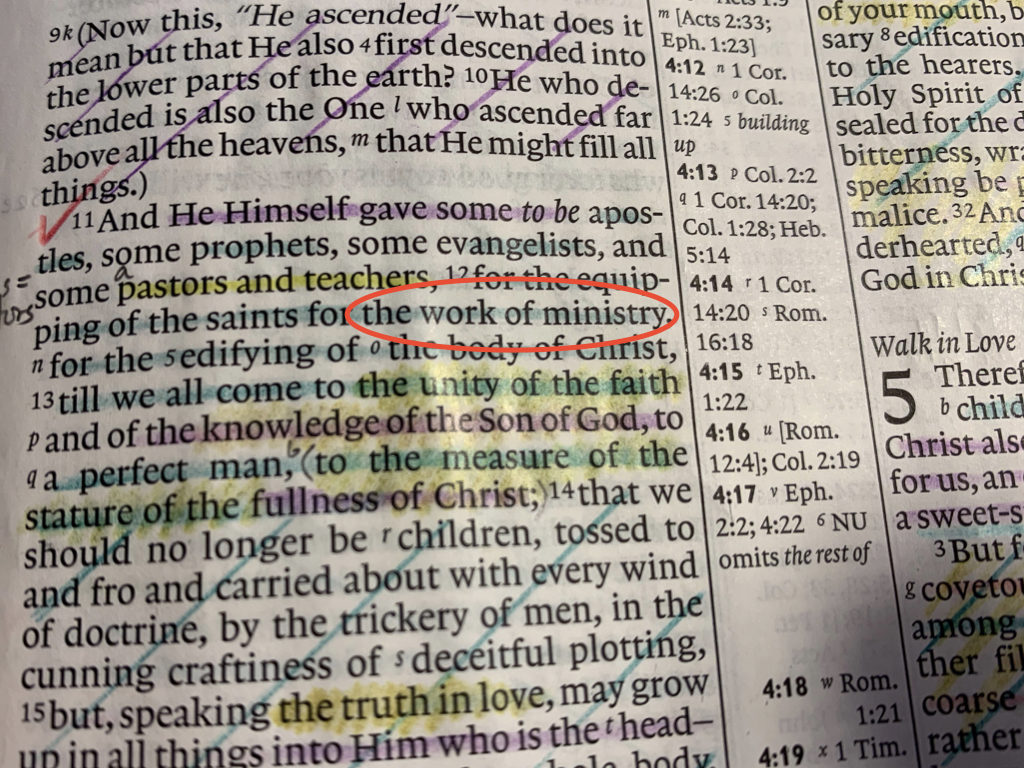
Mark 1–3
As believers in and disciples and imitators of Yeshua, we endeavor to follow the example of how he lived. This isn’t easy to do, for Yeshua experienced much that we as normal humans who prefer the comfort zones of our existence would rather not go through.
Yet, we must all face the stark reality: There is no gain where there is no pain. Every body-builder and athlete knows this. That means to be like Yeshua we will have to endure and overcome trials, suffering, resistance, hardships, persecution and growth pains. This is part of growing up spiritually.
The great thing is that Yeshua is there to help us along the journey with the help of his word and example. He also didn’t leave us comfortless—without the Helper of his Set-Apart Spirit to guide, strengthen and succor us along the way.
It is interesting to note the order of events as Yeshua was launching his ministry. He was about to enter a war zone! After John baptized Yeshua and he received his heavenly empowerment (Mark 1:9–11), he first went through a spiritual boot camp before stepping onto the battlefield of public ministry. Once in the “war,” it’s worth noting where the battle lines fell.
Now let’s take a look at what Yeshua had to go through to prepare him to be all that the Father wanted him to be, so that he could be a river of life to the world. This is an example for us to follow.

- Yeshua’s spiritual boot camp was the wilderness where he fasted for forty days and nights to get his body, soul and spirit, and his mind, will and emotions in sync with the will of his Father in heaven (Mark 1:12–15).
- His first battle was an internal one. The devil tested him in three areas: his body, soul and spirit, or, to put it another way, the lust of the flesh, the lust of the eyes and the pride of life (Mark 1:13). After overcoming himself and submitting to the will of his Father, he was now ready to launch into the war zone of public ministry.
- His mission was to preach the message of the gospel of the kingdom of Elohim and repentance from sin (i.e. Torahlessness, 1 John 3:4; Mark 1:14–15).
- Next he chose his cadre of spiritual warriors — his “army”— the twelve disciples (Mark 1:16–20).
- Where better to start proclaiming the gospel message than in the local synagogue on the Sabbath (Mark 1:21)? After all, the religious folks there should have been overjoyed to hear this good news, fresh message from heaven.
- Yeshua started his ministry by reaching out to those immediately around him in the local synagogue in Capernaum (Mark 1:21).
- His first recorded act, other than preaching, was to cast an unclean spirit out of someone in the local synagogue (Mark 1:21–28). Interesting. He didn’t have to go to the First Church of Satan, a witches coven, a Hindu temple, or a mosque to do this. The demons were right there in the local church!
- Next, Yeshua brought miraculous physical healing to those around him starting with Peter’s mother-in-law (verses 30–31) and then going out to others from there (Mark 1:32–34). The exorcism and physical healing opened the doors for him to begin ministering to those in that city and eventually beyond to other synagogues throughout the Galilee region (verse 39). He preached the gospel, and signs and wonders followed as the kingdom of Elohim was expanded at the devil’s expense.
- He continued preaching and, with compassion, healed the sick and oppressed. His ministry spread to the surrounding areas as he ministered to people at their point of need with the powerful gospel message (Mark 1:40–2:12).
- It wasn’t long before Yeshua aroused the attention of the religious leaders with his controversial ministry methods that ran cross-grain to the religious establishment status quo (Mark 2:6). The scribes began to question him about his healing methods and his spiritual authority. They seemed more occupied with issues relating to religious rituals and protocols than the fact that a paralyzed man had been healed. This happens today among religious people who would rather argue more about words, doctrine, religious formulas, while they miss the whole heart and spirit of spiritual issues. Yeshua called it straining at gnats and swallowing camels.
- Next the scribes and Pharisees questioned Yeshua’s associations. He didn’t fit their criteria as to how a Jewish spiritual teacher should act or with whom he should associate (Mark 2:15–17). As you are retuning to the Hebraic roots of your faith, how often have you heard the term “cult,” “Judaizer,” “legalist” or some such derisive term lobbed at you from so called Christians?
- After this, the Pharisees butted heads with Yeshua over his non-ascetic lifestyle. They didn’t like the fact that he didn’t fast as often as John the Baptist (Mark 2:18–22). Again, arguing over religious protocols. One often hears, “Our denomination or church doesn’t do it that way!” How about what the Bible says?
- Then the Pharisees criticized Yeshua for not observing the Sabbath according to their extra-biblical religious criteria (Mark 2:23–28). Again, its the old routine: “That’s not in accordance with what our church, denomination or the ‘historic Christian church’ teaches.” It’s the same old rhetoric. Same line, different cast of characters.
- Finally, several of these controversial issues converged when the Pharisees questioned Yeshua in a synagogue on the Sabbath as to whether it was legal to perform a miraculous healing on that day or not (Mark 3:1–6). When push comes to shove, they always bring out the big guns of the supposed scholars who love to proffer their expert theological opinions. Usually it’s the traditions of men versus the Word of Elohim.
- Because the religious establishment viewed Yeshua as a threatening anomaly, they begin plotting how to destroy him (Mark 3:6). Their first aggressive act against him was false accusation, and smearing him publicly by accusing him of exorcizing a lower demon through a higher and more powerful demon (Mark 3:22). The Torah prescribes the death penalty for this (Deut 13:5; 18:20). It appears that the scribes (the legal experts) from Jerusalem were coming to apprehend Yeshua for this alleged crime. His family seeing that he was at risk of being arrested, sought to take him into protective custody before the scribes could seize him. Even his own family and friends, though concerned for his well-being, thought “he was out of his mind” (Mark 3:21). Nowadays, people can’t express their hatred and disdain through physical acts of violence or murder, so they use their mouths to murder through hate speech, slander and accusation. Same old shtick! The enemies ways haven’t changed over the millennia.
- From time to time, Yeshua had to withdraw from the battle zone for some spiritual rest and recuperation (Mark 1:35; 3:7, 13 cp. 1:45; 2:13). Even such a stalwart as Yeshua needed downtime occasionally to recharge his spiritual batteries. YHVH has given his end time servants the weekly Sabbath and biblical feasts as times to recharge one’s spiritual batteries by being with him and other like-minded believers. These are regular times YHVH has provided his servants to be able to rest and regroup spiritually in face of the onslaught of attacks by demonically inspired religious enemies. If one isn’t encountering such resistance, then one probably isn’t even in the battle! If so, this is the place of the unprofitable servant in Yeshua’s eyes.
Though Yeshua was the Son of Elohim and was endued with vast spiritual power, being in the ministry wasn’t easy even for him! He had to pass numerous tests, overcome imposing obstacles and opposition of all kind (even, at times, from family and friends), endure false accusations, betrayal, mocking and scorning and even flee for his life at times. His authority was questioned, he came under fire for his unconventional healing methods, his non-religious lifestyle, his questionable associations, and his controversial theology that didn’t line up with the traditions of his day. But his steadfastness to his mission was firmly established in his forty day testing period in the wilderness. There, like an immovable rock, he resolved to be faithful to his Father in heaven regardless of the attacks by the world, the flesh and the devil that were about to assail him with full force.
Should his disciples today expect anything less—unless they’re not even in the war?



